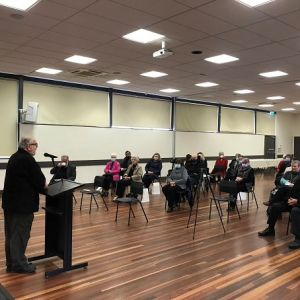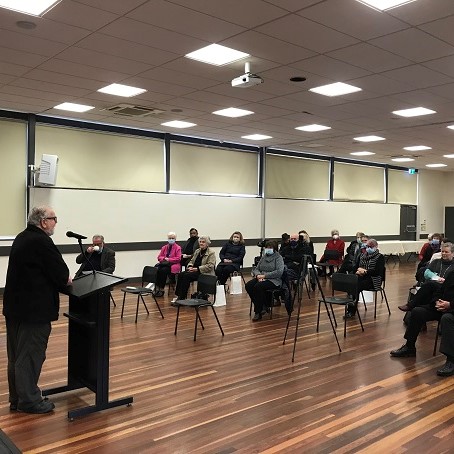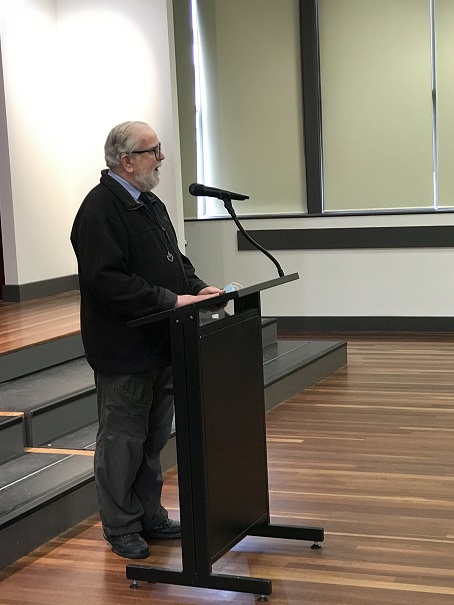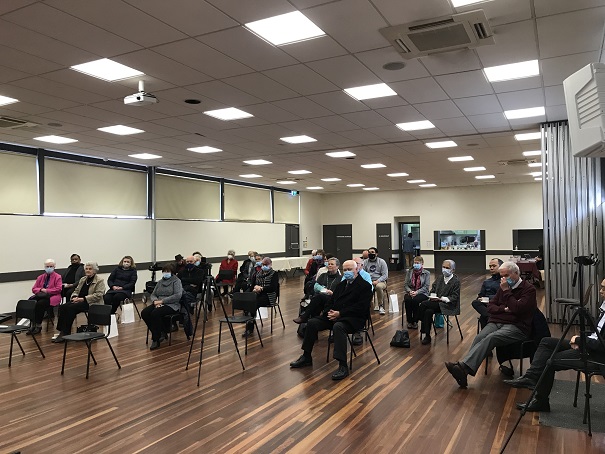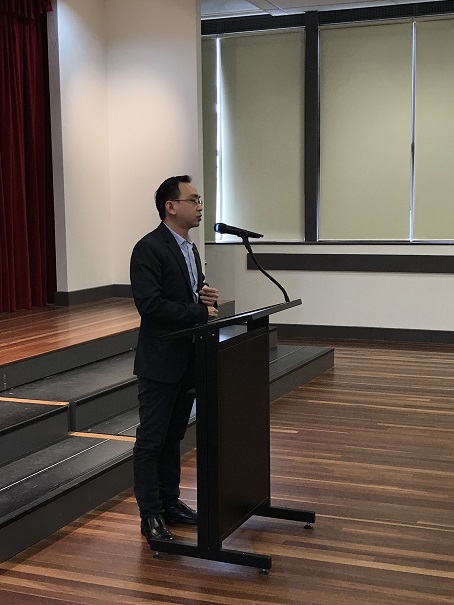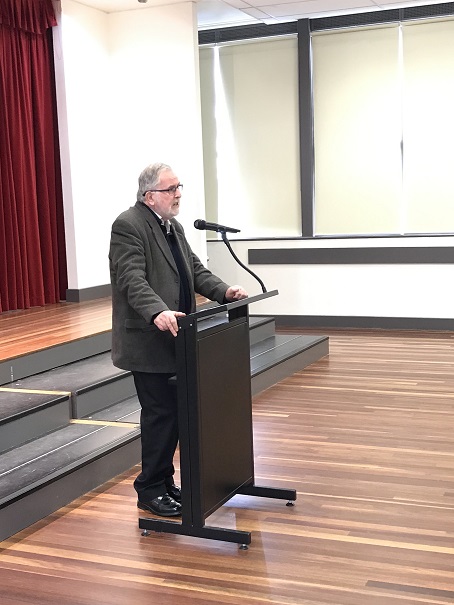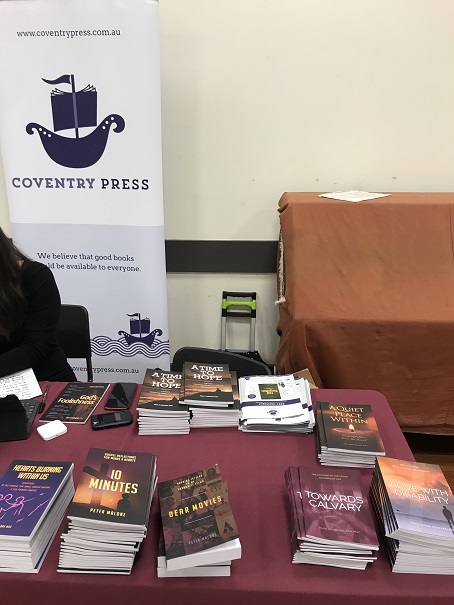Peter MALONE
I Blame Society
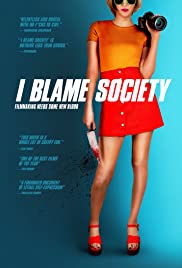
I BLAME SOCIETY
US, 2020, 84 minutes, Colour.
Gillian Wallace Horvat, Keith Poulson, Chase Williamson, Lucas Kavner, Morgan Krantz, Alexia Rasmussen, Jennifer Kim, Devon Graye, Garrett Coffey, Jonny Mars, Macon Blair.
Directed by Gillian Wallace Horvat.
This is an extremely idiosyncratic film. It is the work of writer-director, performer, Gillian Wallace Horvat.
The focus is on Gillian, using her own name, talking with her partner, Chase, about making a personal movie. What attracts her is that Chase’s girlfriend, whom she nicknames Stalin, has made a comment about her qualities as a killer. Chase listens to her proposal, becoming more and more bemused about her plans to make such a film, opts out.
The action moves forward three years, Gillian in a relationship with Keith, with whom she discusses her projects, whom she also films at home, in discussion, in sexual activity. Ultimately, Keith will give up on her. She is recommended to meet with two producers of independent films, lots of discussions, offbeat suggestions, Gillian encouraged.
Then, she sets out to start her film, actually to murder, proud of herself as she disguises herself as blonde, eventually cutting and redesigning her hair, provocative with her clothing, driving around scouting locations. She encounters quite a number of men, those whom she disapproves of. However, she meets up again with Chase, goes on a walk with him, upbraids him for still wanting to marry Stalin. He then has a choking fit and it emerges that she has given him a bagel with sesame seeds to which he has an allergy. She films all this, including his death and her callously not giving him an injection to counterbalance the allergy until he is dead. Later, when Stalin asks her for Chase’s last words, she taunts her, omitting a deathly gurgle.
When she has realised how easy it is to kill, she sets off on her spree in earnest, on the one hand killing men that she considers deserving of death, including one man talking about insurance, talking down his date, Gillian making a date and then killing him. She also explains her situation to an innocent man so that she will not make an easy profile for the police, killing an innocent man. She also attacks an actress of whom she is jealous. There is also a man who listens with eager bemusement to her stories – and is then killed.
Ultimately, she confronts Keith and Stalin, eventually breaking into Stalin’s house (she has perfected techniques of break-ins), poisons her, immerses her in a bath, cuts out all her organs to donate to good causes!
Ultimately, the two producers tell her that they think she has been setting women’s causes back by her story. And, of course, it’s for them to die as well.
The director has said she found it very difficult to make a film, working within the systems, male domination. This is an allegory of her self-assertion – and probably some wishful thinking!
Death of a Ladies' Man
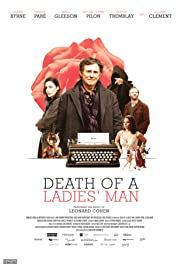
DEATH OF A LADIES’ MAN
Canada/Ireland, 2020, 100 minutes, Colour.
Gabriel Byrne, Jessica Pare, Brian Gleeson, Antoine Olivier Pilon, Karelle Tremblay, Pascal Bussieres, Joel Bissonette.
Directed by Matthew Bissonette.
To appreciate the intentions of this challengingly-named film, it is best to bypass any expectations of close-ups of a ladies’ man and to focus on the theme of death. Death is certainly at the centre of the story – although, in this process of death, of a man being able to go back through his life, the people in his life, the events of his life, his successes and, with greater emphasis, his failures, it could be likened to some kind of “Purgatory of a Ladies’ Man”. (This kind of Purgatory/Death experience is a theme that was explored in its exciting Pixar way in the Oscar-winning Soul.)
The storytelling here is quite stylised, divided into three chapters, focusing on Samuel and the way that he is hooked throughout his life, and a chapter on his travels and writing, and a final chapter bringing all the themes together.
And, the storytelling is particularly stylised in so far as it moves from realistic narrative into what is sometimes called “magic realism”, what seems to be ordinary but events and, here, particularly characters, real and fictional, appear and disappear in Samuel’s life. (He is also diagnosed as having a tumour on the brain.)
The trouble with this kind of central character is that, despite some past Irish charm, he is not particularly likeable – and doesn’t go out of his way to make himself more likeable (except to the end when he is moving towards, we hope, some kind of redemption). His played by Gabriel Byrne, himself an Irishman, long-time resident in the US, but playing an Irish character who has settled in Canada. He tells us that he is 64. A bit late for a midlife crisis – a pre-old ageing crisis, perhaps.
We are suddenly introduced to Samuel and his sometimes hectic life, discovering his wife’s infidelity and demanding a divorce, hurrying to see his son (who announces that he is probably in love and definitely gay) who is also a hockey player. And then, the magical realism really starts, Samuel watching the hockey players line up and then move into dancing routines, balletic on their skates, figure dancing. This kind of hallucinatory experience becomes more frequent, even in the middle of lecturing when he hears one of the students give a spiel when he is simply being matter-of-fact.
Samuel goes to see his daughter rehearsing an avant guard play (and she and her boyfriend on drugs). There is his ex-wife who is going to marry again. There is his university colleague to whom he confides that he would like to write a book. Samuel is a drinker, has had affairs, is not particularly reputable.
But the key thing is, his father keeps entering his life, the younger version of his father, and they reminisce, discuss the past, his mother, his growing up, the father concerned about his son and critical.
So, where can this go? Answer, Part two, to Ireland! He goes back to his old house, finds his father there, settles in quite nicely. At the local store he discovers a young woman who has come from Montréal to look after her sick mother. They are attracted, begin an affair, have happy conversations with the mother. But, there is a jealous man in the background, who threatens, shoots through a window, pursues the running couple in his car, hits a rock and he and the car are catapulted over the cliff. Is Samuel coming to terms with his life or not? His daughter turns up – sees what is happening (or, rather, cannot see what is happening in his hallucinations).
There is some hope for Samuel, frank AA meeting, Samuel telling his story, especially about his concern with his daughter’s addiction and health, and, as they proceed to the church, this particular gathering turns into a song and dance routine. It looks as though there could be some happy ending despite the fact that Samuel is diagnosed terminally.
Since everything has been unpredictable, we find that the ending is also unpredictable, not without some hope, not without some final self-awareness on Samuel’s part. The death of the ladies’ man is not quite what we anticipated.
What makes this story even more distinctive is that especially in three episodes, that Leonard Cohen’s songs are used to dramatic effect, especially Hallelujah after the AA meeting and Did I Ever Love You..
- The importance of the title and the focus on death? Samuel alive, reputation as a ladies’ man, his two wives, his affairs?’ But, his imminent death, his death experiences, hallucinations? A kind of purgatorial experience before his actual death?
- Canadian- Irish production, sequences in the city of Montréal, homes and streets, the sites of Montréal, universities, pubs…? The contrast with Ireland, the vast countryside, the coast, the cottage on the rocks, the town and shops? The musical score? The range of classics?
- The Leonard Cohen songs and their place, at the dance, at the AA, at the death?
- The three chapters of the screenplay, the hook and the worm, the man and his trip writing the book, bringing the themes to a close?
- The realism of the story, the portrait of Samuel, his family, his work, his health? His age, ambitions? The doctor, his health, the tumour and its effects? The desire to write a book? The visit to Ireland, his home? The return to Canada, AA meetings? The book and the achievement?
- The “magic realism” of the story? How much of the whole film was in Samuel’s imagination? The increasing number of hallucinations, in the classroom and what the student said and what he imagined, the episode with Frankenstein? The encounters with his father, enabling him to go back to the past, his appreciation of his father, their Frank talking with each other, his father continually appearing, in Montréal, in Ireland? At the book signing? Everyone there, including Frankenstein? At death and after death?
- Samuel, the opening with the taxi driver, the speed, the wallet, discovering his wife with a lover, ousting him, the confrontation? The divorce? His previous marriage, the divorce? Meeting with his son, in love and gay, the hockey match? And its turning into a musical number, the rhythms, the dancing? His going to see his daughter, the bizarre avant-guard play, the meal with her, his discussions with his children about his qualities as a father?Her drugs?
- His work, lecturing, the hallucinations, being sick? His academic friend and their discussions? His friend lecturing for him?
- With his wife, concern about their children, her marrying again, his kissing her, her slapping him? The tension between the two? The scene of the Christmas dinner, everybody together? Samuel absent and the tension?
- Samuel, the flight to Ireland, the home, setting it up, his father at home, the meals, the fire, the conversation? Going to the shop, the encounter with Charlotte? The banter, his return, the relationship, the affair? The local, confronting him, Samuel attacking him, the shots through the window? Charlotte and Samuel running to the cliff, the pursuit, the car hitting the rock and going over the cliff? Charlotte and her story, Montréal, modelling, her Irish mother, going to visit, the chat and comparing of ages and relationships with Charlotte’s mother?
- Samuel at home, his daughter visiting him, his looking dishevelled, talking about his father and Charlotte, his daughter not seeing them?
- The return to Canada, going to the AA meetings, the frank talk, Samuel and the flashbacks of his daughter, her boyfriend (with whom he had discussions at the nightclub and afterwards on the water), heroin, her drugs, rescuing her, the hospital? The group and their testimony, processing, everybody dancing? His relationship with his son?
- Completing the book, the publication, the book signing, his reading, the focus on his father? Everybody at the signing, his children and their pride, his son and his boyfriend, his former wife? And his father at the back?
- The unexpected climax, Samuel going to the street with his father, his daughter’s boyfriend, the drugs, attacking him, accusing him of stealing the story, killing him? The family coming out, distraught?
- Samuel, walking with his father, discussing the nature of death, the experience of death, leading to…?
- The successful blend of fantasy and reality? The meaning of death?
Ferry

FERRY
Belgium/Netherlands, 2021, 104 minutes, Colour.
Frank Lammers, Elise Schaap, Huub Stapel, Raymond Thiry, Monica Hendricks, Tim Linde.
Directed by Cecilia Verheyden.
Ferry (Frank Lammers) is a character from the television series, Undercover. The series was so popular that there was a decision made to provide a prequel, the early life of Ferry.
There are some indications of very difficult childhood for Ferry, a harsh and violent father. The action immediately shifts to Ferry in middle age, working for a wealthy businessmen/gangster, Brink (Huub Stapel). He is a hitman, a violent thug, very loyal to his employer. When there is a masked raid on the headquarters of the businessman and the businessman’s son shot, Ferry is commissioned to find the three masked invaders.
While this is the main action of the film, there is also the complexity of Ferry’s relationship with his sister, knowing of a tumour, her husband who has been a great friend and is very helpful in getting information for Ferry’s quest, and an encounter with an attractive young woman, seemingly romance the first time in Ferry’s life, and then the discovery of a secret about the third man he is seeking that has its effect on his romance. Ultimately, it will have an effect on his loyalty to his boss and a shootout.
If seen on its own, it is an effective portrait of a thug (who may have some redeeming qualities).
- Title? The focus on Ferry? Audiences knowing him from the television series? This prequel, his background, life, work, relationships?
- The settings in the Netherlands and Belgium? The atmosphere of the countries? Flemish culture and language? Flat country? The musical score?
- The focus on Ferry, the flashbacks to his childhood, with his sister, with his mother, the severity of his father? Punishment and brutality? Explaining Ferry as an adult?
- Ferry, in middle age, his working for Brink? Brink and his business empire? Criminal activities? Ferry, tough, brutal, no hesitation in executing orders? Loner? Alienated from his sister? The reasons given, their mother’s funeral and his anger? Eventual reconciliation?
- Brink, his activities, his henchmen, the deals, drugs, money? The club, the secret area, the cash and money counting? Brink and his son, his disappointment with his son, his son working for him?
- The invasion, the masked men, the taking of the money, the shots, the son being shot, taken to hospital, coma, eventually dying? His father’s grief?
- Brink’s anger, commissioning ferry to find the attackers?
- Brink, his getting clues, follow-up, contacts and information? His visit to his sister, his friendship with John, John helping him with identifying characters, getting information? Claudia, her illness, anger with Ferry? Ferry and his being upset, later visits, phone calls? Reliance on John?
- The lead to the campsite, his going to the house of the suspect, seeing Danielle? Getting his own accommodation? The diner, meeting Danielle, her charm? Meeting, date, liaison? The effect on Ferry? Going into the house, making it look as if it were burgled, Danielle calling Jason? Ferry pursuing Jason, into the woods, the confrontation, confession, his death?
- The continued pursuit, the clue is, the second man, identified, confrontation, death?
- The continued relationship with Danielle, her response? The effect on Ferry?
- His getting the name of the third attacker, discovering that he was Danielle’s brother, her devotion to her brother and his support? Ferry, the abrupt breaking with Danielle, her shock? Blaming herself?
- Meeting with the brother, their talk, suspicions, the later confrontation, the brother just being the driver, his plea? In the woods, the shot?
- Brink checking with Ferry about getting the men, Ferry lying about the brother? His return to Brink, his work?
- Time passing, brooding about Danielle? Not doing his work, the next in charge, the deals with the drugs, the supervision?
- The chance encounter with Danielle, the visit to Amsterdam, the underling and the confrontation? The threat to Danielle? Brink, upset, confronting Ferry? The shootout, ferry’s death?
- The happy ending for Ferry, reconciled with Danielle, not telling the truth? Danielle meeting Claudia and John? Meeting her brother, his drug production, going into business with him?
- And then the chronology of the television series?
Bury My Heart at Wounded Knee
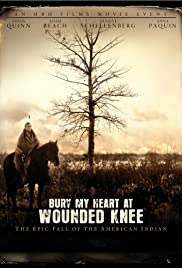
BURY MY HEART AT WOUNDED KNEE
US, 2007, 133 minutes, Colour.
Aidan Quinn, Adam Beach, Anna Paquin, August Schellenberg, Fred Thompson, Colm Fiore, Gordon Totoosis.
Directed by Yves Simoneau.
This film was produced by Home Box office in 2007, comparatively later in films dealing with history, the 19th century, Native Americans. In the 70s, there were some feature films which highlighted these themes including Little Big Man and Soldier Blue.
This film is wide in scope, giving some detailed representation of the life of the Native Americans, their fighting amongst themselves, the attack by the military, dispossession of the land, the discovery of gold in Dakota, the building of railroads, the gradual move to reservations, government impositions, treaties and their signing, the government not fulfilling the conditions, growing disillusionment, the defeat of the chiefs, the confining of the tribes to the reservations, the administration of the reservations.
The film shows the military as aggressive, wanting conflict, attempts at negotiations, angry outbursts, shootings, massacres. The film shows the leadership of Red Cloud and his being subdued. It shows the defiance of Sitting Bull (a strong and subtle performance by August Schellenberg), his ultimate humiliation, allusion to his travelling with Bill Cody, eventual subjugation, where there were no chiefs, but every Native American was considered equal.
Representing the government is Aidan Quinn as a sympathetic senator, with the cause of the Native Americans, but with a lot of presuppositions from the white government, the danger of paternalism, and his being caught in negotiations with the government as well as visits to talk with the Native Americans. There are some moments with President Grant, considered the great white chief, who expresses sympathy for the Native Americans.
The other central character is the young boy, part white, part Indian, who was reclaimed by his white father, sent to school, then sent to Illinois to train as a doctor, becoming Charles Eastman, achieving a great deal, often regretting that he did not jump off the train, remembering his symbolic feather that was awarded him after the battle of Little Big Horn. As a doctor, he travels to the reservations, achieves a great deal, writes letters to the government… Accompanying him as his wife, Elaine (Anna Paquin) a teacher.
The film does not shy away from the conflicts between the military and the Native Americans, especially a focus on, with a significant aerial overview, Little Big Horn. And the climax of the film, is a massacre at Wounded Knee, including the killing of Sitting Bull.
The film won 29 awards and had 31 further nominations.
- The title? The climax of the film at Wounded Knee? Deaths?
- Audience knowledge and appreciation of the history of Native Americans, the long presence in North America, the tribes, prosperity, conflicts? The arrival of the Europeans? 19th century greed, military, treaties, Reservations, the Native Americans wanting their traditions, hunting, government edicts? The conflicts with the military? Especially Little Big Horn?
- The portrait of the Native Americans, their way of life, tribal, the Chief, hunting and survival, dignity?
- The American government in the 19th century, the role of Lincoln, his being admired? President Grant in the tradition of the Civil War? His attitude towards the Native Americans? Sympathy, paternal attitudes? Presuppositions about the white settlers, expansion, trade, gold, the railroads? Ownership of the land? The various discussions, treaties, breaking the treaties, imposing of the conditions? The effect on the Native Americans?
- The focus on Henry Dawes, in conversation with President Grant, the clash with General Sherman and his militaristic attitudes? The Senate, the negotiations, and compassionate man? His white presuppositions? Negotiations, treaties, his visit to the communities, speaking with the chiefs, Red Cloud, Sitting Bull? His patronage of Charles, bringing him east, his education, his achievement, Henry’s pride in him? The communication, Charles going to the Reservation, his plea to Henry? The final meeting, the job of giving Christian names to the Native Americans?
- The final information at the end, about the treaties, financial compensation instead of land…?
- The tribes, Red Cloud, his age, those supporting him, the encounters, operation, the tribes having to settle down? Speeches? The agreement? The consequences, Sitting Bull and his disagreement with Red Cloud, Red Cloud and the tribes going to the reservation, the conditions?
- The contrast with Sitting Bull, his personality, the supreme chief, relationship with the members of the tribe, his son? Resisting the impositions of reservations? Eventually happy to capitulate, his pride, his manner, demanding his rights, his speeches? Eventually having to capitulate? The consequences, the move to Canada, the setting up of the Reservation? His going with Bill Cody, the show, autographs and photos? The greater humiliation? His son in the military?
- The portrait of the military, aggression, confrontations with the Native Americans, the lineups, discussions, decisions for war? The buildup to Little Big Horn, the aerial view of the battle? The consequences?
- The focus on the Indian boy, his white father, coming to get him, his place in the tribe, involvement in Little Big Horn, the symbolic feather? His being sent East, his education, the flashbacks to his schooling, his defiance, the teacher wanting him to have a question name, his explanation of taking Charles? His success, Henry presenting him to the public? Elaine and her support?
- Charles, his success as a doctor, the sponsorship of Henry? The decision to go to the reservation? His work as a doctor, the oppressed Indians, starvation, relying on castor oil? The limited house, no waiting room? His building up the practice, getting on the medicine? His letters to the government, especially about the epidemics and the consequences?
- Elaine, trained as a teacher, moving to teach the Native Americans? The bond with Charles, supporting him, the marriage?
- James Mc Laughlin, his appointment, his attitudes, listening to the chiefs, laying down the law for them, his supervision, pride in his achievement? The consequences of his work?
- The plight of the Native Americans, subservience, not wanting to till the land, wanting to hunt, cattle? The need for handouts, for meet in food? The proposal that they buy the land to prevent the white settlers buying it? Unwillingness, Red Cloud standing up at the end? The consequences of property, derelict, starvation?
- The buildup to the finale, confrontations, antiwhite man traditions, rituals, government suspicions, military and it Native American confrontations, the beginnings of the shootings, the massacre, Charles and Elaine tending the wounded, hearing the story? And the killing of Sitting Bull?
- The final information, the work of Charles and Elaine, their family?
- The final photos of the actors alongside photos of the real characters?
tick...tick...BOOM!
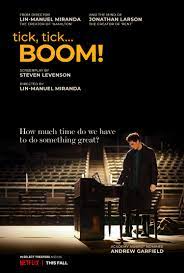
tick… tick… BOOM!
US, 2021, 120 minutes, Colour.
Andrew Garfield, Alexandra Shipp, Robin de Jesus, Joshua Henry, Judith Light, Vanessa Hudgens, Bradley Whitford, Joel Gray, Richard Kind.
Directed by Lin- Manuel Miranda.
Sounds of tension then an explosion! Tick… Tick… BOOM!
This was the title of a semi-autobiographical musical with lyrics and score by Jonathan Larson. In fact, this film is a tribute to Larson and his contribution to American musical theatre.
Jonathan Larson (1960-1995) is best known for writing the musical Rent which played on Broadway for 12 years and was made into a successful film. His autobiographical musical is set just before his 30th birthday, is wanting to achieve some fame quoting Stephen Sondheim having his first success at age 27, working on a musical, Superbia, while working in a diner and composing in a small apartment.
The framework of the film is a performance of his autobiography, Larson sitting at the piano, narrating, singing, accompanied by two other singers and some musicians. Larson is played by Andrew Garfield, a combination of genial friendship, frustrated genius, anxiety about growing older without success. Andrew Garfield also sings all his songs.
Which means then that this is a strong musical – and, it has been directed by Lin-Manuel Miranda after his success with Hamilton and In the Heights. And the narrative, and the performance of the songs, the recitations, are reminiscent of Miranda’s own musicals.
The dynamic of the show is Larson desperate to complete Superbia, his first major musical, for a special presentation in front of Broadway producers, hoping that it will be taken up. Within the performance, there are scenes of work at the diner, Larson and his friendship with Michael, a gay man, and the background of AIDS. It is 1990. There is also Larson’s relationship with his girlfriend, Susan, needy for his support, he being preoccupied with his work. Then there is his agent who hasn’t contacted him for a year but who invites the producers for the presentation (Judith Light in another strong performance as she did in Ms White Light) and the glimpse of Sondheim himself (played by Bradley Whitford) sneaking into the presentation.
So, while the story is that of the eager and hopeful composer, the strain and stress of preparing for the presentation, the presentation itself is impressive – but, audiences who enjoy musicals, will be caught up in the staging and continual development of Larson’s story as Tick… Tick… But he did not live to see the Boom that he hoped for. But, his music does live on.
- An entertaining musical? The songs from the 1990s? The 2020s treatment? Lyrics, relationship to life and stories, musical score? Performances?
- The title, the music of Jonathan Larson, his presentation of his musical and the recreation of the presentation? The narrative performance and his telling and singing his life story and musical ambitions? Audience knowing whether he was the author of Rent or not, of his success and lack of success, his early an unexpected death?
- The work of Lynn manual Miranda, his own musicals, his directing this one – and his personal style?
- The structure of the film, the introduction to Jonathan Larson, his age, impending 30th birthday, his ambitions, working on his musical for five years, working at the diner? His apartment, sharing with Michael, friendship with Michael? His relationship with Susan? Ups and downs, her wanting to move from New York, wanting his attention? His preoccupation with his work? The friendship with all those at the diner, and interactions with the customers?
- His musical, Suburbia, its narrative, suggestions of aliens, of relationship to American life? The 1990s? His preparation for the presentation, the songs, the rehearsals, the singers, the band, Ira and his advice, wanting money for extra band members, Michael and his moving from acting to advertising, Jonathan going to the meeting, quick wit, then mockery? And is later feeling the need for Michael’s new lifestyle, to moving to advertising?
- The framework of the film, Jonathan at the piano, narrating his life story, singing the songs, the two main singers and the band? The audience? The songs and then going into the reality of Jonathan’s life the cumulative effect? The narrative and the building up to the presentation?
- Jonathan and his personality, the visit of his parents to the presentation, relationship with Susan, preoccupied with his work, her inability to leave him be, wanting attention? The discussions with Michael, lifestyle? The friend from the diner with AIDS, hospital? (And the status of AIDS and the epidemic by 1990, the death of so many men?)
- The night before the presentation, the power going out, Susan, is going for the swim, composing the final song?
- The presentation itself, the rehearsals, the range of singers in the entourage, their questions about the musical? Their performance, the lead singer, the new song read by site?
- The agent, not in touch for year, but the invitations for producers to come to the presentation? Jonathan arriving early, anxious? The seat for Susan? People turning up, Stephen Sondheim coming in late (and Jonathan’s comparisons of composition and age with Sondheim)? The success of the presentation, the applause?
- The aftermath, the producers praising the quality, but not accepting Suburbia? Looking for his next musical? The phone call from Sondheim and the encouragement?
- Jonathan, the discussions with Michael, Michael’s revelation about AIDS, and the issue of having enough time for life?
- The 30th birthday, the celebration, Susan coming in the gift, the book for the new musical, Jonathan and his friends?
- The information about his writing rent, success, 12 years on Broadway? And the sadness of his untimely death?
- Attributed Jonathan Larson and his musical achievement?
Book launch, Blackburn, 6 MSC books (after lockdown)
Book launch, Blackburn, 6 MSC books (after lockdown)
After the 10.30 Mass at St Thomas Blackburn, the launch was held of 6 books by Melbourne MSC community writers, published in 2020 and 2021 – but no launches because of lockdown.
Community leader, Philip Malone, was MC. The books were launched by the honorary Victorian confrere (locked down at Monivae for several months), Bob Irwin. Friends of the community and friends of the authors were present. Peter Curry provided refreshments.
The launch was filmed by Trieu and Anh for simultaneous or later viewing on the MSC Australia Vocations’ Facebook site and the MSC Australia Facebook page. (And thanks to Trieu for the photos of the event.)
Two disappointments. Brian Gallagher was unwell and unable to come – restricted to watching online. Coventry Press editor, Hugh McGinley (who has shepherded 16 books by MSC authors since 2018) had to go into isolation because of connection with covid infected relatives. Hugh usually speaks at the launches. He sent a message, below.
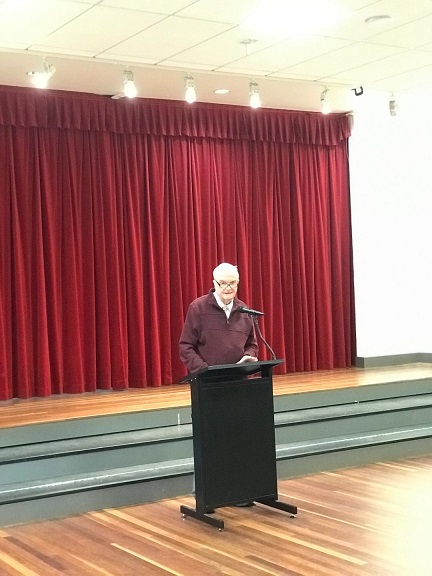
Bob Irwin, with his long experience in education, spoke engagingly about the authors, noting their work in formation, the common denominator of their writing in their search for and discovery of their God. Bob also noted that he would not be reading Brian’s The Joy of Ageing until he thought it was relevant! He offered strong support for the authors and their work.
Khoi spoke of his struggles with diagnosing the difficulties with his eyes and sight. His own writing of the Way of the Cross in Towards Calvary, and a heartfelt invitation to readers to share his experience of Living with Disability.
With Brian absent, Peter Malone acknowledged Brian’s contribution to the Province, Vocations Director, Formation Director, establishing the Heart of Life Centre (now completing its 39th year), Provincial, and many books on prayer, communal discernment and, more recently, 6 books with Coventry, Set me Free, The Eyes of God, God’s Foolishness, Communal Wisdom, No Greater Love,The Joy of Ageing.
Peter Malone spoke on his Dear Movies, letters to films, written when he was turning 80, films which influenced his life, spirituality, communications ministry, 101 letters. Just as there has been a tradition of Lectio Divina, Spiritual Reading, now there is a developing tradition of Visio Divina, Spiritual Viewing. 10 Minutes is a short book of 20 reflections on the Gospels in the light of the Old Testament, drawing on over 50 years of teaching Old Testament and Gospel studies. The book has a personal style, engaging in conversation with the reader.
Hugh’s comments: All publishers need good authors. For small Christian publishers like Coventry Press, this is specially the case.
Coventry is a Melbourne -based publisher, committed to publishing for the major Australian churches. Our list includes serious theology and scripture as well as spirituality, ethics, church history and social justice.
Above all, our purpose is to publish books that help everyday Christians live lives of faithfulness to the gospel of Jesus Christ, within the community called the church.
That is why today’s celebration is important. Each of our authors - Peter Malone, Khoi Nguyen and Brian Gallagher – all religious of the Missionaries of the Sacred Heart – has written books that, while different in content and style – help us to understand our tradition, deepen our faith, fill us with hope.
I congratulate them for the gifts they offer us and thank them for choosing to publish with Coventry Press.
Then refreshments – all in all, 28 minutes of the formalities of the event, as can be seen:
Werewolves Within
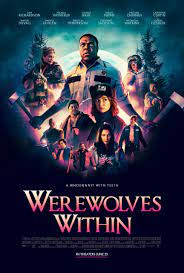
WEREWOLVES WITHIN
US, 2020, 97 minutes, Colour.
Sam Richardson, Milana Vayntrub, George Basil, Sarah Burns, Michael Chernus, Catherine Curtin, Wayne Duvall, Rebecca Henderson, Michaela Watkins, Glen flesh, Harvey Guillen, Cheyenne Jackson.
Directed by Josh Ruben.
There’s been quite a tradition of the werewolf films, especially from the 1930s and 40s. These are the films that older reviewers will be remembering. However, younger reviewers will tell the oldies that this particular title is that of a computer game – and has to be considered as a version of playing the game, oddball characters, dangerous situations, werewolf threats, and, of course, elimination of characters with more than a touch of the gory. (And the screenwriter’s name happens to be Wolff!)
Which is what this film does. However, to the uninitiated, it does seem like something of a scratch concert, the actors enjoying themselves and indulging in caricature, and a lot of it seeming very much impromptu. This is not the kind of film we remember with solemn black-and-white, horror overtones, Lon Chaney Jr or even more free recent versions of The Wolf man with Benicio Del Toro, let alone the sinister Jack Nicholson in the 1990s, the grim Wolf.
Which means that the setup is quite contrived. We have a town out in the sticks somewhere with about a dozen inhabitants. We have seen that there are some sinister happenings at the beginning but then things turn jolly, and new Ranger, large and friendly, played by Sam Richardson, dives in and encounters Cecily, who runs the postal delivery and helps out at the local hotel. Gradually, we are introduced to the various characters, a couple who ran a garage (he a variation on the hillbillies), then a witch -like character with a pet dog whose husband has strayed with the garage wife, and a rather prissy camp gay couple. Visiting is an executive who is promising finance for the building of a pipeline, some eager for the money, some environmentally protesting. And, visiting, is a scientist to set up her laboratory in her hotel room. There is also a bushy-bearded aggressive hunter, a mountain man.
A lot of first part of the film is bickering, especially when the landlady’s husband is found chewed up, electricity failing, everybody gathering in the hotel. This leads to cantankerous human nature, then violent human nature, reminding us we all have werewolf capacities within. And, when everybody decides to go home, the killings start! So, who is the werewolf?
With an ever diminishing cast, it narrows down to just a couple of suspects – and, things brighten up (at least for those who are wanting some horror and gore) when the werewolf is revealed, monster appearance, going into malicious action.
So, very broad comedy, werewolf conventions, a cinema equivalent of a pastime like playing the computer game!
Blue Miracle
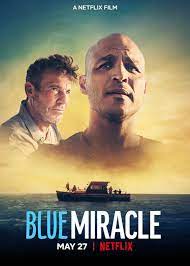
BLUE MIRACLE
US, 2021, 95 minutes, Colour.
Dennis Quaid, Jimmy Gonzalez, Fernanda Urrejola, Bruce Mc Gill, Dana Wheeler- Nicholson, Miguel Angel Garcia, Isaac Arellanes, Anthony Gonzalez, Nathan Arenas, Steve Gutierrez.
Directed by Julio Quintana.
This is a Mexican story. It is also a deep sea fishing story, a competition to bring in the biggest blue marlin. It is also a story about an orphanage. And, with the title focusing on miracle, the audience knows right from the start that there is going to be a happy ending. No suspense concerning who will win the competition – the suspense comes in how this will be achieved.
And, this is a true story, the blue miracle and all. In fact, as with so many films nowadays, there are photos of the actual characters, the fishing episode and the achievement during the final credits.
At the centre of the film is Jimmy Gonzalez as Omar, director of the orphanage, Casa Hogar (Home). It is noted that Jimmy Gonzalez himself had a rather tough upbringing as an orphan, involved with gangsters, drug dealing, a lookout for the gangs. But, with determination, he overcame his background and became an actor. He brings his own background to this story, made emotional by nightmare flashbacks to his character as a boy, fishing with his father, swept overboard, surviving, his father drowned.
Dennis Quaid has top billing. Here he is again as a crusty, very crusty, old man, veteran fisherman for 25 years in the town, winning the competition twice, but with an old boat, very few prospects – and his wife and son having left him to go back to Dallas.
There is quite a dramatic storm, flooding of the orphanage, but the organisers of the annual competition, the Bisbees (Bruce Mc Gill and Dana Wheeler Nicholson) determine that the competition must go on and fees will be lifted. Sympathetic to the orphanage, less sympathetic to Wade, they insist that he take on Omar and some of the boys as the crew.
So, three days of competition, frustration in hooking seaweed, a second day and the possible victory but tension on the boat with two of the boys fighting and falling overboard, the temptation to cheat, conscience issues, and then the blue miracle.
There is quite some energy in the film, the kind of film that is called “inspirational”.
- Based on a true story? The characters, the orphanage, the deep sea fishing competition, the victory? The photos during the final credits?
- The Mexican setting, the town, the orphanage, the walls, the boats, orphanage and interiors, the storm and flooding, the sequences at sea, fishing? The musical score?
- The title, the audience knowing the ending – but interest in how it would be achieved?
- Omar, founding the orphanage, supported by Becca? His nightmares, as a boy, fishing, his father, swept overboard, under the boat, the sadness of his father’s death but actually having known him? The challenge for him at the end with the catching of the marlin?
- The establishment of the orphanage, the range of children, ages, the dormitories, the meals, Becca and her cooking? Financial difficulties? Donations? The phone call from the bank?
- The encounter with Moco, the police, the stealing of the watch, Omar and communication, going to Wade, his angry attitude? The invitation to Moco? His surly attitudes, his mother in Dallas, absent father, clashes with the boys, the fight and their falling overboard? Going on the expedition, sitting in the seat? The return, the sweater, participation, change of heart, his knowing about the cheating, and knowledge in Omar as a father figure?
- Wade, his past triumphs, down and out, wife and daughter gone, taking on tourists, resisting the cheating? Entry into the competition, no money, the discussions with Bisbee, the condition that he take Omar and the boys, resentment, his associate on the boat, the first day, surly with the boys, Omar making a plea, talking with them, the lure, catching the seaweed? The effect of the first day? The second day, the marlin, the boy reeling it in, the boys quarrelling, overboard, the snapping of the line? Wade upset, Omar bringing him the food?
- Wade and the buying of the marlin, the cheating, to get the money for the orphanage? The moral dilemma for Omar? Moco and his overhearing? Setting out, the engine trouble, concealing the fish, putting it behind the boat, Omar and his conscience, cutting it loose? The effect on Wade? Wade confessing that his second victory was cheating?
- The orphans and their discussing about having a father, Wade’s choice to be a fisherman rather than a father, the boy is challenging him?
- The big fish, Omar and the seat, reeling it in, the excitement, the boys? The achievement? The orphanage and watching television? The Bisbee’s and their support? The cheque?
- The aftermath, the information about the winnings, renovating the orphanage, new buildings? Girls orphanage?
- Tweety, writing his petitions, God’s will, the nail, putting them on the wall, his drawing – and belief in miracles?
7 Days in Hell
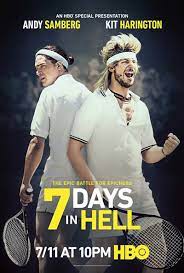
7 DAYS IN HELL
US, 2015, 45 minutes, Colour.
Andy Sandberg, Kit Harrington, Fred Armisen, Michael Sheen, Karen Gillen, Will Forte, Howie Mandel, June Squibb, Mary Steenbergen, Lena Dunham, – and, as themselves, David Copperfield, Jim Lamley, John Mc Enroe, Serena Williams, Chris effort, Dolph Lundgren. Narrated by Jon Hamm.
Directed by Jake Szymanski.
This is a short feature, only 45 minutes. It is the kind of film that could have been made by the Saturday Night Live team. It is not a deep, existential film of torment over a week, although there is existential torment. But, it is experienced by to champion tennis players during the final at Wimbledon. While this is an American film, it has a British setting, British characters – and an excursion to Sweden.
The premise reminds audiences that, once upon a time, tennis matches could continue at length until there was a victory by two games. (That is no longer the case.) However, the screenplay imagines what it is like for the game to continue and to continue and to continue over a period of seven days.
And, with wild imagination from the screenwriter as well is the performances, all kinds of dramatic and comic excursions in flashbacks take place.
The film is a star vehicle for comedian Andy Sandberg who obviously relishes his role as a champion tennis player, abandoned by his parents, taken in by the Williams family – with Serena Williams herself participating and doing talking head commentary about her brother (verse and the reverse of the plot of The Blind Side). Speaking of Serena Williams, there is commentary throughout the film by Chris effort, bemused by the match, and the familiar kind of commentary, sharp and critical by John McEnroe. And, there are a number of characters who serve as television commentators, notably Fred Amundson as a supercilious Englishman.
Sandberg’s opponent is played by Kit Harrington, most famous for his role in Game of Thrones. He plays the rather slow tennis hero, dominated by his mother (Mary Steenbergen), responding to television interviews with “indubitably”. There are some priceless scenes where he is interviewed on a television program by a very effete camp interviewer played expertly by Michael Sheen.
As the film opens, Sandberg its a very hard a’s, knocking down an official, killing him, the crowd branding him as murderer. He then disappears for some time, turning up in Sweden, designing men’s underwear, imprisoned when the underwear courses rashes, seen in a very comfortable Swedish prison, challenged by his opponents interview comments, making his escape, returning to Wimbledon. Indiscreet himself earlier by responding badly to the crowd and knocking the Duke of Kent to the ground. So, there are also pokes of royalty, not only to the Duke of Kent but with phone calls from Her Majesty, rather rough language than the Queen would ever use, and her finally appearing at Wimbledon, urging him on, played by June Squibb.
And, the days go on, all kinds of interruptions and jokes, the two exhausted and the final collapse.
As with this kind of comedy, a lot of the visuals and the language are no holds barred!
Nine Days
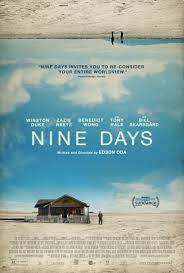
NINE DAYS
US, 2021, 124 minutes, Colour.
Winston Duke, Zazie Beetz, Benedict Wong, Bill Skarsgaard, Tony Hale, David Rysdahl, Arianna Ortiz.
Directed by Edson Oda.
A thumbnail review: ‘existential God-figure searches for his own redemption’. Someone else might write a different thumbnail: ‘characters, hoping for new life, undergo challenges for nine days’. In fact, both have quite some truth in them. And one might add, not a spoiler, this is a film which ends with an intensely dramatic recitation of Walt Whitman’s Song of Myself.
Nine Days was sponsored by the Sundance Institute and, one does not have to journey very long into the running time to appreciate that this is very much a Film Festival Film. It is demanding, requires concentration (especially to puzzle out what is actually happening and why), has an esoteric setting, an isolated house out in the Utah planes. In a sense, this is pre-time and we are not always realising that another of the nine days has passed until one of the characters alerts us.
There is a towering performance at the centre of this film, holding our attention, holding our admiration despite the ranges of moods, the judgements he makes on some people, the tasks he set them, and his involvement in his own life and problems. He is Will, played by Winston Duke (seen in the Black Panther films). Will is in charge of the centre where he interviews the candidates for new life, sets them tasks over the nine days, asks them to focus on important moments for them, challenges them in their sometimes erratic behaviour. There is only one of the candidates who will proceed to be born.
And, all the time, he is surrounded by large screens, a huge video collection, memories of the young violinist, whom he had chosen for life, and her death which continually torment him-watching on the screen the films of her life, videos as backgrounds for some of the people he is interviewing, videos which can recreate precious memories or an exhilarating experience of the candidate’s choice (a walk on the beach, particularly a bike ride through the Latin American town and out into the countryside).
And, at his side, is Kyo (English actor with Chinese Backround, Wong in the Marvel Universe from the Dr Strange movies), adviser, supervisor, challenging friend, a kind of guardian angel to Will, a blend of the genial and the raucous. There are intriguing performances, given their characters and what is required of them, by Tony Hale, smug and resentful though insecure, Bill Skarsgaard, younger and more serious, Arianna Ortiz a sensible middle-aged woman.
But, also at the core of the film, is a young woman, Emma, played by is Zazie Beetz, seriously observing Will, discussions, continually puzzling, charming Will, probably the obvious candidate for the audience to approve her being born. But, that would be too easy a decision for this kind of film.
Some commentators remarked how original the ideas and the screenplay of Nine Days are – but, it is worth noting that in the 2020 Oscar-winning Pixar film, Soul, this was one of the key ideas, the souls preparing themselves to be born.
[Variety journalist, Peter de Bruge, noted in his review that this film was limbo-like but, with its moral dilemmas for the candidates before they were born, it could be called a Pregatory.]
- The title? Expectations? The director and his Brazilian background American background? Filming in Utah, California, Brazil?
- The premise of the narrative? Souls preparing to be born, interviews with the supervisor, the nine days to prove themselves, writing and notes, observing, creating characters, given a choice for a significant moment? But few being chosen?
- The location photography, the house in the open plain, the desert plain? The interiors of the house? The range of locations for the flashbacks, the Hispanic town, children growing up, music and concerts, the local wedding, walks on the beach, the suggestion of limbo existence, pre-purgatory, pre-gatory?
- The existential feel of the film, the nature of life, human life, relationships, ambitions and achievement? The prospect of life, being born? Decisions, success and failure?
- The importance of Will, his physical appearance, manner, in charge? The same clothes? His office, documents, working’s office? The story of Amanda, sending her to be born, her life, growing up, music, to appear in the concert, the crash, his going over and over the sequence, reliving it, puzzled about her choice? His manner with the interviews, his working with the candidates, interactions, challenges, criticisms?
- Kyo, his presence, ethnic background, assistant to Will, handyman, work around the house and outside, a device to Will, criticisms? A kind of Guardian Angel? His interaction with the various candidates? The final decisions?
- Will, providing images of happy moments of the candidates’ choices? The videos, the big screens, the screening of the images? On the beach? Cycling through the town and out into the countryside?
- The different personalities of the candidates? Their interviews? Mike, putting himself down, the walk on the beach, the attack by Alex? Alex, smile, seemingly confident, the beach, assault on Mike, the interview with Will, pleading for another chance, not getting it, his resentment? Maria, matter-of-fact, her story, her imagination, discussions with Will, her choice of the moment of cycling? Kane, young, not obtrusive, appearing more at the end, the meal with Will and Emma, Kyo’s story, their having to share disgusting stories, Kane serious, finally laughing? And his getting Will’s consent to live?
- Emma, age and appearance, presence, observing all, Will, the conversations, the effect of the experience on her, discussions with Kyo and his support? Her final interview, and not being chosen? Her going out into the desert plain?
- The effect on Will, the memory of Amanda, affection for Emma, his reasons for not choosing her? Hurrying out in pursuit of her? Her turning? His past wanting to be an actor? His dramatic rendition of Walt Whitman’s poetry, a poetic dramatic climax, the existential content?
- A different exploration of the life?
